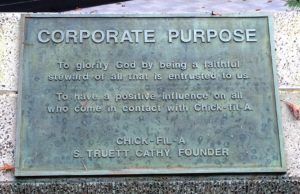Over the last couple of years, there has been an influx of celebrities, athletes, and businesspeople living out loud with their faith and business for Jesus Christ. Most recently, entertainers like Kanye West and Justin Bieber, athletes like Omar Odom (who was once married to Khloe Kardashian), actor Mark Wahlberg, and many more are proclaiming Jesus as the One who saves.
Why is this significant?
There’s a shift taking place where the business and entertainment worlds are merging more and more with faith in Jesus Christ.
No longer do we have to keep our faith separate from our natural gifts and talents or live separate lives – actually, we never had to! Followers of Christ can own businesses, be in entertainment, play sports, or act in Hollywood – and still proudly proclaim, “Jesus is Lord!” God created each of us with a specific purpose that will ultimately bring glory to His name.
Exodus 9:16 says, “But I have raised you up for this very purpose, that I might show you my power and that my name might be proclaimed in all the earth.”
Social media connects faith and business.
Social media is a tool used for marketing, but it also allows us to peek into the personal lives of others. Not only do we see actors, entrepreneurs, and artists in the public eye, but we also have the opportunity to witness their family life and catch a deeper glimpse of who they are.
The culture today demands that people keep it real, or in other words, “be true to themselves”, which includes spirituality.
So, how do we merge faith and business or entertainment?

In this season, believers are not only called to the church but to the marketplace as well to fulfill their purpose. While you’re on display for what you do, God wants you to shine for His glory, too! But, how can you position yourself for this to happen? You can:
- Make the profession that God is the center of your life. Every decision made is based on the fact that you are His representation in the earth. Consult God daily in prayer and take the time to listen for His answers. They may come in the form of a thought, phone call, text, or email. (Matthew 6:33)
- Live a balanced life in front of others. This is very important. For example, I openly profess my Christianity in the hair salon I co-own, so I know I’m always watched and heard. I try my best not to profess one thing, and act out of character should a conflict or issue arise. Over the years, I have learned not to use my business platform for “preaching” to employees or customers. But when led by the Spirit, I share God’s wisdom on a topic. The key is following His lead. (Colossians 4:6)
- Build your business or career to uphold your core Christian values. Without showing partiality, treat everyone with love. This can be a hard one at times! But, I have learned over the years that every thought doesn’t have to be spoken. Disagreements can lead to arguments and sometimes even worse! For the sake of not offending a brother or sister, sometimes it’s best to remain silent and just pray. Regardless of any outcome, treat everyone the same regardless of race, gender, or sexual orientation. (James 2:1)
- If you have a business, create a Mission Statement that sums up your vision and morals. Recently, I saw a picture of Chick-fil-A’s Corporate Purpose and it made me consider what my business’ mission should reflect. Here’s their Corporate Purpose:

“To glorify God by being a faithful steward of all that is entrusted to us. To have a positive influence on all who come in contact with Chick-fil-A.”
SO, WHAT’S THE PLAY CALL?
Let’s get busy! Re-evaluate your passions, your purpose, and PRAY! Ask God how you can be an example of His glory in the earth. If you’re just starting a business, a career in entertainment, or have a goal to start this year, use these four steps at the beginning and watch God prosper the vision!
Proverbs 19:21– “Many are the plans in a person’s heart, but it is the Lord’s purpose that prevails.”




